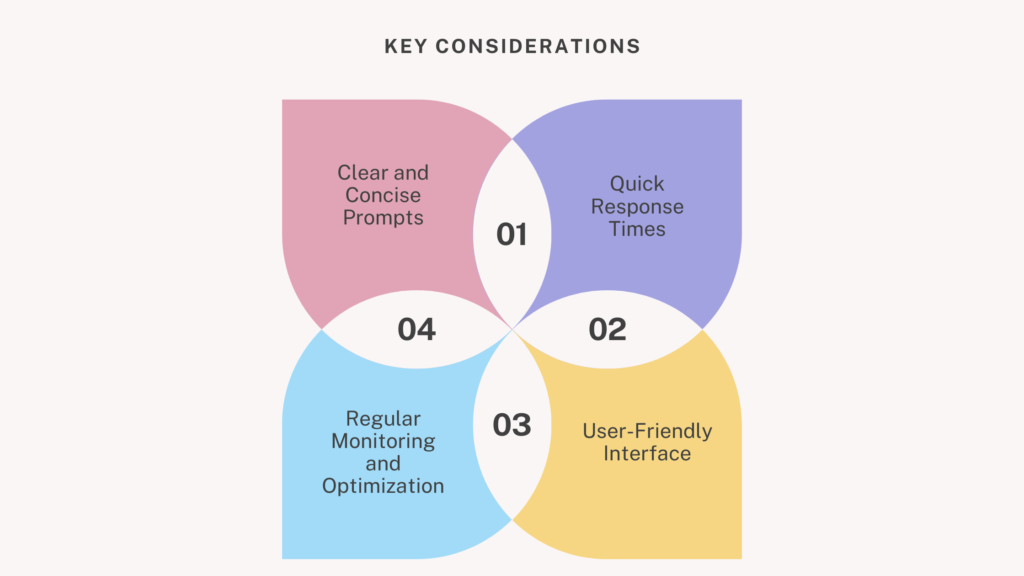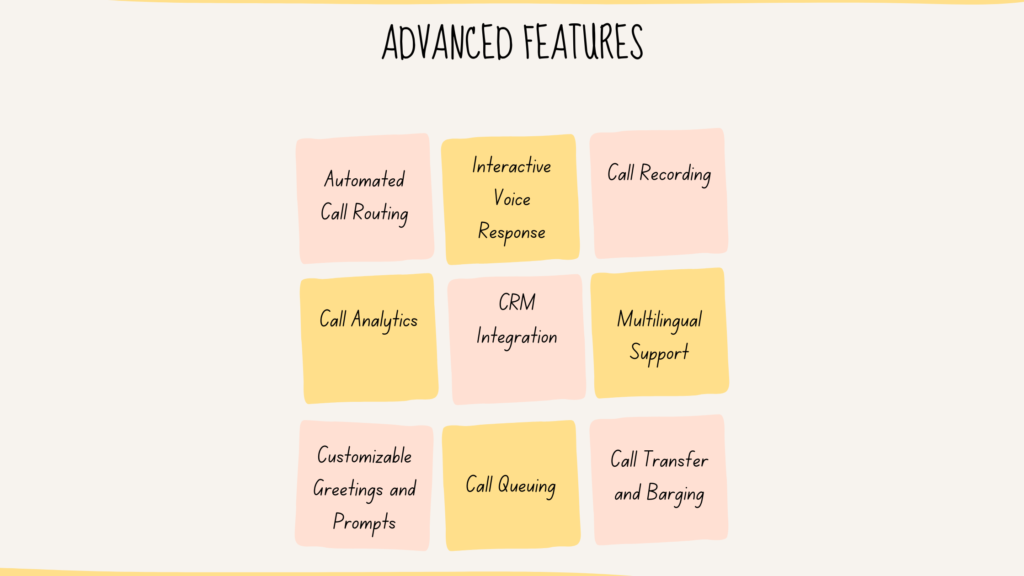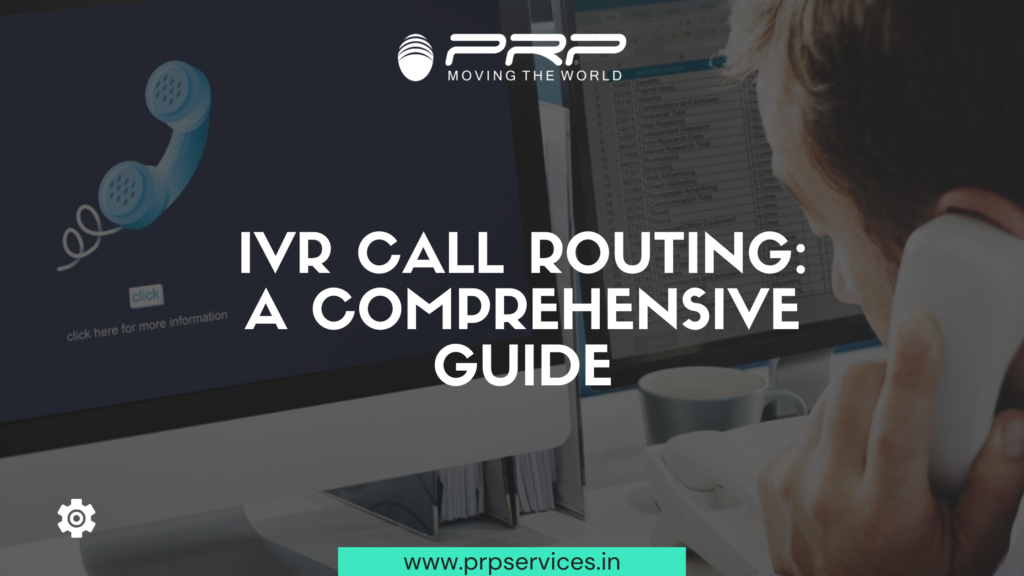where customer satisfaction and operational efficiency are top priorities, IVR (Interactive Voice Response) call routing has become a cornerstone for businesses. This technology ensures seamless communication by directing callers to the right department or service without delays, enhancing both the customer experience and overall productivity.
From handling high call volumes to automating routine inquiries, IVR call routing empowers businesses to stay ahead in a competitive market. Whether you’re in customer service, sales, or technical support, implementing an IVR system can transform how your organization manages incoming calls.
What is IVR Call Routing?
IVR (Interactive Voice Response) call routing is a technology that automates the process of directing incoming calls to the appropriate destination. By utilizing IVR systems, businesses can guide callers through a series of pre-recorded prompts and options, allowing them to either self-serve or connect with the right agent. This system is particularly valuable in customer support, sales, and service environments where quick and accurate call routing can significantly enhance customer satisfaction and operational efficiency.
How Does IVR Call Routing Work?
The IVR call routing process typically follows these steps:

Incoming Call: A customer calls a business’s main phone number.
IVR Greeting: The caller hears a pre-recorded greeting, such as “Thank you for calling [Business Name]. Please listen carefully to the following options.”
Call Routing: Calls are routed to the appropriate destination based on the information provided by the caller.
- Specific Agent or Department: For example, pressing 1 for Sales, 2 for Customer Service, or 3 for Technical Support.
- Queue: If multiple callers select the same option, the system places the caller in a queue, allowing the agent to handle the call when available.
- Self-Service Option: Automated services offered by the IVR system include resetting passwords and arranging appointments. For example, “To check your account balance, press 1. To reset your password, press 2.”
- Recorded Message: If required, the caller may hear a pre-recorded message, providing them with the information they need, such as store hours or holiday closures.
Benefits of IVR Call Routing

Enhanced Customer Experience:
- Reduced Wait Times: Callers can quickly reach the right department or agent, reducing frustration and enhancing their overall experience.
- 24/7 Availability: IVR systems can operate around the clock, providing 24/7 customer support even when agents are unavailable.
- Personalized Greetings and Options: You can customize greetings and options to different customer segments, providing a more personalized experience.
Increased Operational Efficiency:
- Automated Routine Tasks: IVR systems can automate common customer service tasks, reducing the workload on agents and allowing them to focus on more complex issues.
- Improved Agent Productivity: By eliminating routine tasks, agents can handle more calls and resolve problems faster, ultimately improving customer satisfaction.
- Reduced Labor Costs: With automated call routing and self-service options, businesses can optimize staffing levels and reduce the cost of human resources.
Lead Generation and Sales:
- Capture Leads: IVR systems can effectively capture leads by prompting callers to leave their contact details for follow-up. For example: “To receive more information, press 1 to leave your contact details.”
- Qualify Leads: By asking pre-set questions, the IVR system can help businesses qualify leads before passing them to sales agents. For instance, an insurance company can ask callers for their preferences, so agents know what information to provide.
- Upselling and Cross-selling: IVR systems can also help upsell or cross-sell products by analyzing customer behavior and directing them to relevant options. For example, after a customer presses 1 for a product inquiry, the system can offer a discount on complementary products.
Valuable Data Insights:
- Call Analytics: IVR systems can track call volume, duration, and peak usage times, giving businesses valuable insights into customer behavior.
- Customer Behavior Patterns: By analyzing data on the options customers choose, businesses can identify common queries, preferences, and service gaps.
- Identifying Peak Usage Times: This allows businesses to optimize staffing schedules to handle peak call volumes, ensuring that customers are served promptly during busy periods.
Key Considerations for Effective IVR Call Routing
For an IVR system to be effective, several factors need to be considered:

- Clear and Concise Prompts: Use simple, easy-to-understand language and limit the number of menu options to ensure smooth navigation.
- Quick Response Times: Minimize wait times by optimizing call routing and ensuring quick responses from agents.
- User-Friendly Interface: Design an intuitive IVR system with easy-to-follow prompts to improve the overall caller experience.
- Regular Monitoring and Optimization: Continuously monitor system performance and adjust the routing process to improve customer satisfaction and operational efficiency.
Security and Compliance
As IVR systems handle sensitive customer data, security and compliance are paramount. Here are key considerations for businesses implementing IVR systems:

- Voice Encryption: Encrypting voice interactions ensures that customer conversations remain secure and protected from unauthorized access.
- PCI DSS Compliance: If the IVR system handles payment information, it must comply with the Payment Card Industry Data Security Standard (PCI DSS). This helps businesses securely process payments and protect sensitive financial data.
- GDPR Compliance: Businesses operating in the European Union must ensure their IVR systems comply with the General Data Protection Regulation (GDPR). This involves obtaining explicit consent for data collection and providing transparency about how customer data is used.
- Call Recording Security: For quality assurance purposes, many IVR systems record calls. These recordings should be stored securely and only accessible to authorized personnel. Local laws regarding call recording and customer consent must be adhered to.
- Data Tokenization: Sensitive information can be tokenized to ensure it is not accessible even if a data breach occurs. This is especially important for financial data.
Why Choose PRP Services for IVR Call Routing?
PRP Services offers a state-of-the-art IVR solution that combines advanced features with robust security and expert support to deliver a superior customer experience. Here’s why PRP Services is your ideal IVR provider:
Advanced Features

- Automated Call Routing: Efficiently directs calls to the right department or agent, reducing wait times and enhancing customer experience.
- Interactive Voice Response: Allows callers to navigate through menus, making their journey smoother and more efficient.
- Call Recording: Helps monitor call quality and improve agent performance.
- Call Analytics: Provides valuable insights into call patterns, helping optimize operations.
- CRM Integration: Seamlessly integrates with your CRM system to ensure that customer data is easily accessible.
- Multilingual Support: Offers multi-language support to serve diverse customer bases.
- Customizable Greetings and Prompts: Customized greetings and menu options to align with your business’s brand.
- Call Queuing: Efficiently manages incoming calls and reduces the wait time for callers.
- Call Transfer and Barging: Allows agents to transfer calls easily, and supervisors can barge in to assist agents in real-time.
Reliable and Secure:
- Durable Infrastructure: PRP Services ensures high uptime and minimal disruptions, keeping your IVR system running smoothly.
- Data Security: With stringent data protection measures in place, your customers’ sensitive information remains secure.
- Disaster Recovery: Comprehensive disaster recovery plans help minimize disruptions during emergencies.
- Dedicated Support Team: PRP Services offers a dedicated technical support team to address any issues promptly.
- Customization Options: Customize the IVR system to fit your specific business needs, whether you’re handling customer support, sales, or technical assistance.
- Regular Maintenance: Ensure your system stays up-to-date and optimized through regular maintenance and updates.
Real-World Example
A large e-commerce company implemented PRP Services’ IVR system to manage a surge in customer inquiries during the holiday season. The IVR system efficiently routed calls to the correct department, reduced wait times, and ensured that customer queries were resolved quickly. As a result, the company saw a 30% improvement in customer satisfaction and a 20% increase in call resolution efficiency.
Future Trends in IVR Call Routing
- AI-powered Voice Recognition: Leveraging artificial intelligence, IVR systems can improve the accuracy of call routing by understanding more complex voice commands and context, enhancing the overall customer experience.
- Chatbots: As an extension of IVR, chatbots will play a critical role in offering 24/7 customer support, handling routine inquiries, and providing quicker resolutions.
Frequently Asked Questions (FAQs)
IVR call routing uses technology to direct callers to the right department or agent based on their input. It’s important because it improves customer experience, reduces wait times, and streamlines business operations.
IVR systems quickly connect callers to the appropriate team, offer 24/7 availability, and provide self-service options, helping customers resolve their issues faster and more conveniently.
Yes, IVR systems can be tailored to fit businesses of all sizes. They help small businesses handle calls efficiently, save time, and improve professionalism.
Look for features like customizable menus, call recording, CRM integration, multilingual support, and data security. These ensure better customer handling and operational efficiency.
Modern IVR systems come with robust security measures like encryption, PCI DSS compliance for payments, and GDPR adherence to protect sensitive customer data.
Conclusion
IVR call routing has reform the way businesses manage communication, providing a seamless and efficient way to connect customers with the right departments or services. By automating routine tasks, reducing wait times, and offering 24/7 availability, IVR systems enhance customer satisfaction and operational efficiency. With advanced features like CRM integration, call analytics, and durable security measures, IVR solutions empower businesses to optimize resources and improve overall performance.

